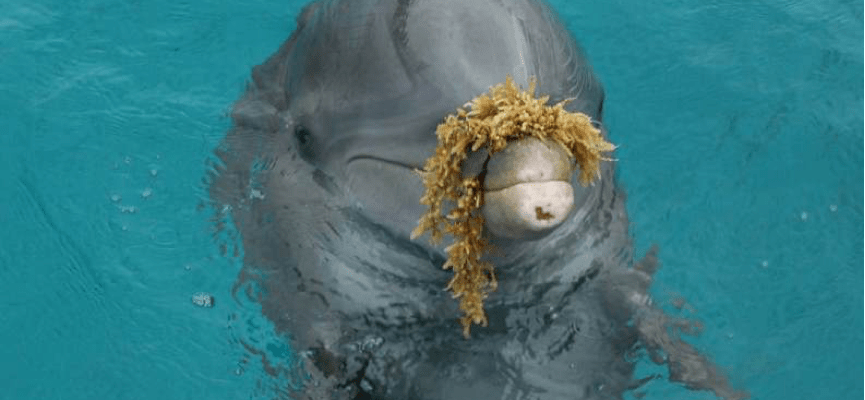|
By Julia Zeh
Editor Josephine McGowan When we think of the phrase “having fun,” the first image that comes to mind is small, lighthearted children. And hot on its heels, we think of “having fun” as a unique human ability. If we think more broadly, we usually attribute “having fun” to intelligent mammals, such as primates, dogs and cats. But what we usually don’t think of are small, simpler organisms like invertebrates. So what is play? Scientifically, play adheres to five criteria: 1) an animal is not under severe stress; the actions governing the behavior 2) seem not functional, 3) are repeated, 4) different from other serious behaviors the animal exhibits, and 5) perceived as pleasurable or rewarding. Although we think of intelligent mammals as being capable of play defined in these terms, what we sometimes perceive as play or having fun is actually something else for the mammal. This is true in dolphins, a creature that we generally think of as happy, possibly because of the structure of their jaws that seem locked in a permanent smile. We picture dolphins being playful, jumping in and out of the water. However, this seemingly playful activity can actually be an aggressive behavior. When dolphins leap out of the ocean, it is often because they are fighting with other dolphins and breaking the water surface at high speeds to breathe. But there are other things that dolphins do that scientists believe are forms of play, such as riding on waves for no functional reason or passing around organic objects like seaweed, fish or sea turtles. Similar behavior can be play in animals other than mammals. Fish, frogs and reptiles can have fun. Fish can leap over objects in the water for fun, frog tadpoles ride bubbles, adult frogs sometimes wrestle each other without sexual intentions, and komodo dragons, turtles, and crocodiles play with objects in ways similar to dogs. Given the established role that play seems to have on mammals and other critters, it is surprising to think that invertebrates can also indulge in play. Previously, invertebrates were considered unintelligent and incapable of higher-level actions exhibited by animals with backbones. Yet, an ideal example of play in invertebrates is seen among cephalopods. Octopuses can be seen acting in an exploratory way towards objects by using their arms or siphons to move objects around or playing catch-and-release with their prey the same way a cat would with a mouse. Spiders, another invertebrate, have also been observed exhibiting play behavior. They also engage in non-functional sexual behavior that does not result in conception. At the moment, these observations are preliminary evidence to the argument that invertebrates, too, can play. So why do these animals play? Play can stimulate creative behavior and is hypothesized to have originated when species developed the metabolic capacity as well as increased time and safety for extended activity without functional benefits. As we become less skeptical about the abilities and cognitive capacities of other organisms, we can learn much more about them in relation to us by accepting the possibility that they too may exhibit human-like actions like playing and having fun.
0 Comments
Leave a Reply. |
Categories
All
Archives
April 2024
|

